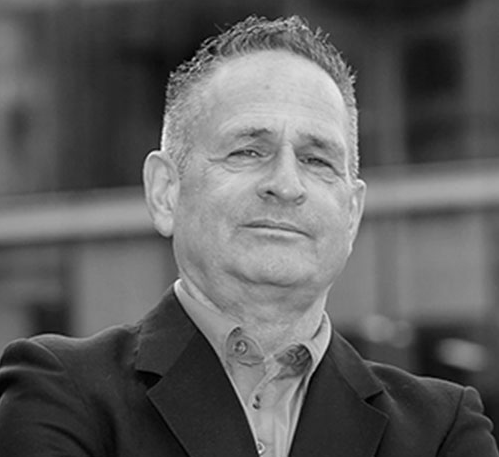Work-life balance is a myth — this is what great leaders do instead

Andrew Horn
- Published
- Opinion & Analysis

Work-life balance has long been held up as the key to professional fulfilment. Yet, as Andrew Horn argues, dividing hours between office and home does little to satisfy the deeper need for purpose. The leaders who stand out are those who root their work in values, treat leadership as service, and align success with meaning. Balance without purpose, he concludes, is no balance at all
Ask anyone about work-life balance and you will hear the same story: too much work, not enough life, and a nagging sense that something is missing. The truth is that human beings are not satisfied with hours neatly divided between office and home. We are compelled to search for understanding, for purpose, and for significance in the things we do. Even our name, homo sapiens – the “wise human” – reflects a desire for understanding beyond the routines of daily life. Without a sense of meaning, even the most carefully calibrated balance between working hours and leisure time risks feeling hollow.
This is why the most effective leaders align their professional lives with deeper values, ensuring that their contribution to the world resonates with their own sense of purpose. The balance they pursue is not merely between work and life, but between work, life, and meaning.
There is comfort in routine, as Jackie Chan once noted when describing the peace he finds in everyday housework. In repetition, ideas can flourish. Yet for many people, routine in the form of a job that fails to inspire can feel more like a trap than a source of creativity. Stacking shelves, entering data, or any other task performed without connection to a higher purpose may pay the bills, but it rarely nourishes the spirit.
Happiness is often linked to the work we do, not simply the time we spend outside of it. Given how much of our lives are consumed by our professions, it is no surprise that fulfilment becomes elusive when work is stripped of meaning. A job that is devoid of personal significance cannot be fully offset by evenings, weekends, or holidays, however restful they may be.
The idea that work can be a path to something higher is not new. In the Bhagavad-gita, Krishna speaks of karma-yoga, the discipline of turning work into a spiritual practice by dedicating it to the greater good. Work performed in this spirit is not only productive but also transformative. It sublimates the ordinary, infusing it with significance that elevates both the individual and those they serve. The Sanskrit verse describes this state: brahma-bhuta prasannatma, na shochati na kankshati, samah sarveshu bhuteshu… labhate (Bhagavad-gita 18.54). It means that one who rises to the spiritual platform finds real happiness, has no lamentation or hankering, sees all beings equally, and arrives at a state of inner peace.
This principle translates powerfully into leadership. When leaders approach their role not merely as a function of authority but as a service to others, they tap into the deepest motivation of the human heart. The Vedic insight is that service is not something imposed upon us but part of our nature, as intrinsic as sweetness is to sugar or saltiness to salt. The more influential the position, the more important this service-minded approach becomes.
Modern thinkers echo this ancient wisdom. Yuval Noah Harari, in Sapiens, advises us to “live in the present moment instead of fantasising about what might have been.” This presence allows us to anchor ourselves in values that make sense of our actions and commitments. Meditation and reflection help us uncover those values, while aligning them with our professional lives transforms both the quality of our work and our capacity for resilience.
When leaders find ways to connect what they do to what they believe, efficiency and motivation follow naturally. A leader whose work resonates with meaning does not need to manufacture energy. Their heart is engaged, and their example inspires others.
I was fortunate to have a father who embodied this. A neuroscientist, he devoted his life to probing the mysteries of the brain in search of the soul. Whether or not his quest answered that imponderable question, it gave him joy, direction, and a sense of mission that shaped his life and work. It was, in no uncertain terms, the life and soul of him. I once thought of asking him whether doing what you love was the very mode of the soul itself, though I held back because it begged the question of why a soul would so avidly wish to prove it was a brain. Imponderables aside, I had a father who loved what he did and knew how fortunate he was for that. These footsteps are worth following, not only for the sake of personal happiness but for the benefit of those we lead and influence.
There are practical ways to achieve this:
1. Define your values clearly. Spend time articulating the principles that matter most to you. These become the compass by which you can assess whether your professional path is aligned with your deeper sense of purpose.
2. Reframe work as service. See leadership not as command but as contribution. Whether to colleagues, customers, or society at large, viewing your work as service opens a channel for meaning to enter.
3. Integrate reflection into routine. Practices such as meditation, journaling, or even mindful pauses in the day allow you to step back, reconnect with your values, and ensure that decisions are being guided by purpose.
4. Pursue growth beyond skills. Career development is not only about technical ability or financial reward. Seek growth that expands your sense of meaning through projects that stretch your moral imagination or allow you to contribute to causes bigger than yourself.
5. Lead by example. Demonstrate to those you lead that meaning matters. Celebrate purpose-driven achievements, recognise contributions that serve the collective good, and show that success is measured not only in profit but in progress.
READ MORE: Explore Andrew Horn’s other pieces on spirituality at work, leadership and meaning here.

Author Andrew Horn, the son of the great neuroscientist Sir Gabriel Horn and grandson of the socialist peer Baron Soper, is widely regarded as one of the world’s leading experts on traditional Indian and Sanskrit drama whose English translation of the epic 16th-Century Vidagdha Madhava by Rupa Goswami is considered the most accurate ever published. Despite his notable lineage, Andrew chose a different path, becoming a Hare Krishna monk for 20 years. During this time, he was given the name ‘Arjundas Adhikari’, signifying devotion to the hero Arjuna from the Mahabharata. He also appeared on Top of the Pops with Boy George for the singer’s 1991 hit, Bow Down Mister.
Main image: Pixabay Pexels
RECENT ARTICLES
-
 Europe cannot call itself ‘equal’ while disabled citizens are still fighting for access
Europe cannot call itself ‘equal’ while disabled citizens are still fighting for access -
 Is Europe regulating the future or forgetting to build it? The hidden flaw in digital sovereignty
Is Europe regulating the future or forgetting to build it? The hidden flaw in digital sovereignty -
 The era of easy markets is ending — here are the risks investors can no longer ignore
The era of easy markets is ending — here are the risks investors can no longer ignore -
 Is testosterone the new performance hack for executives?
Is testosterone the new performance hack for executives? -
 Can we regulate reality? AI, sovereignty and the battle over what counts as real
Can we regulate reality? AI, sovereignty and the battle over what counts as real -
 NATO gears up for conflict as transatlantic strains grow
NATO gears up for conflict as transatlantic strains grow -
 Facial recognition is leaving the US border — and we should be concerned
Facial recognition is leaving the US border — and we should be concerned -
 Wheelchair design is stuck in the past — and disabled people are paying the price
Wheelchair design is stuck in the past — and disabled people are paying the price -
 Why Europe still needs America
Why Europe still needs America -
 Why Europe’s finance apps must start borrowing from each other’s playbooks
Why Europe’s finance apps must start borrowing from each other’s playbooks -
 Why universities must set clear rules for AI use before trust in academia erodes
Why universities must set clear rules for AI use before trust in academia erodes -
 The lucky leader: six lessons on why fortune favours some and fails others
The lucky leader: six lessons on why fortune favours some and fails others -
 Reckon AI has cracked thinking? Think again
Reckon AI has cracked thinking? Think again -
 The new 10 year National Cancer Plan: fewer measures, more heart?
The new 10 year National Cancer Plan: fewer measures, more heart? -
 The Reese Witherspoon effect: how celebrity book clubs are rewriting the rules of publishing
The Reese Witherspoon effect: how celebrity book clubs are rewriting the rules of publishing -
 The legality of tax planning in an age of moral outrage
The legality of tax planning in an age of moral outrage -
 The limits of good intentions in public policy
The limits of good intentions in public policy -
 Are favouritism and fear holding back Germany’s rearmament?
Are favouritism and fear holding back Germany’s rearmament? -
 What bestseller lists really tell us — and why they shouldn’t be the only measure of a book’s worth
What bestseller lists really tell us — and why they shouldn’t be the only measure of a book’s worth -
 Why mere survival is no longer enough for children with brain tumours
Why mere survival is no longer enough for children with brain tumours -
 What Germany’s Energiewende teaches Europe about power, risk and reality
What Germany’s Energiewende teaches Europe about power, risk and reality -
 What the Monroe Doctrine actually said — and why Trump is invoking it now
What the Monroe Doctrine actually said — and why Trump is invoking it now -
 Love with responsibility: rethinking supply chains this Valentine’s Day
Love with responsibility: rethinking supply chains this Valentine’s Day -
 Why the India–EU trade deal matters far beyond diplomacy
Why the India–EU trade deal matters far beyond diplomacy -
 Why the countryside is far safer than we think - and why apex predators belong in it
Why the countryside is far safer than we think - and why apex predators belong in it


























